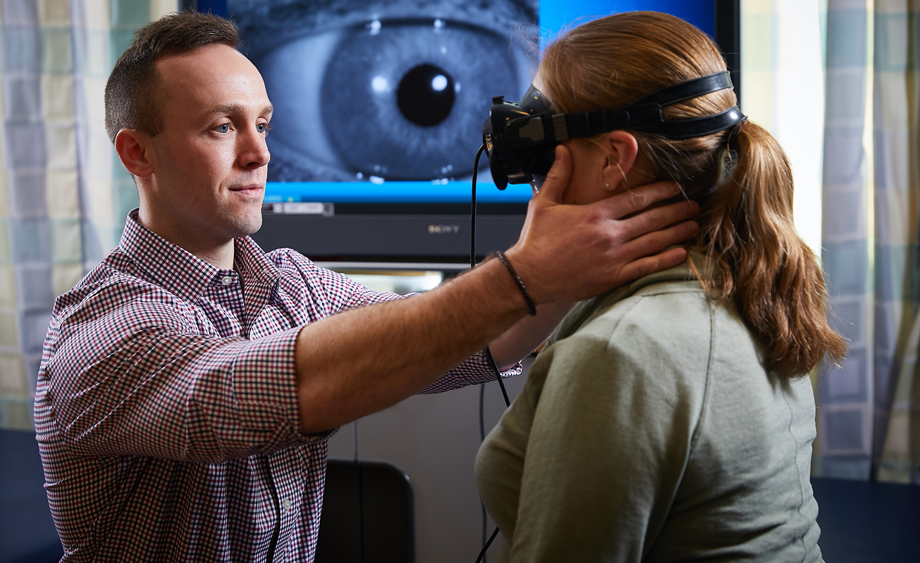
Whether you’re a child or an adult, and regardless of your physical condition, vision problems can affect your balance, ability to read and write, eye-hand coordination, driving skills, visual memory and many other tasks. Vision problems that require therapy can result from developmental disorders, multiple sclerosis, cerebral palsy, whiplash, traumatic brain injuries (TBI), stroke, sensory processing disorders, concussion or other neurological disorders.
Vision therapy is also known as vision rehabilitation, vision training, neuro-optometric rehabilitation or neuro-vision therapy. This therapy aims to train the eyes and brain to work together to enhance, develop or rehabilitate how a person processes visual information. It does not include vision impairment that can be corrected with eyeglasses or contact lenses.
Good vision is more than good eyesight
Vision starts to develop shortly after birth and continues through childhood. It’s shaped by genes, environment and experience, including injuries or diseases experienced at any point in your life.
Effective vision ultimately depends on the interaction of the eyes and brain. Vision is not only the ability to distinguish fine details – it is also a complex interaction of learned skills. These include the ability of the eyes to focus, aim, coordinate, fix on and follow objects, eye-hand coordination, depth perception, visual form perception, and the ability of the brain to interpret and assign meaning to what the eyes see (meanings and perceptions affect your mind and your ability to perform even the simplest task).
What conditions are treated with vision therapy?
- Eye movement disorders
- Visual motor disorders
- Depth perception disorders
- 3D vision difficulties (stereo blindness)
- Learning-related vision problems
- Vision problems that result from traumatic brain injuries or stroke (including balance problems)
- Amblyopia (aka lazy eye)
- Strabismus (aka crossed eyes)
- Binocular vision problems (eyes have difficulty sending a clear image to the brain)
What are symptoms in children that indicate they might benefit from vision therapy?
- Tilt their head or must turn to see
- Poor hand-eye coordination
- Poor handwriting
- Poor balance or motor coordination
- Inability to concentrate
- Frequently drop objects
- Frequently bump into things
- Close or cover one eye to see
- Hold a book very close to their eyes
- Often reverse words or numbers when reading (for instance, “tub” becomes “but” or “13” becomes “31”)
- Frequent dizziness, nausea, eyestrain, motion sickness or headaches
- Light sensitivity
What are symptoms in adults that indicate they might benefit from vision therapy?
- One eye drifts
- One eye aims in a different direction than the other
- Frequent headaches or eyestrain when reading, writing, working on computers, etc.
- Frequently skips lines or words or substitutes words when reading
- Need to use a finger to “underline” when reading
- Covers or closes one eye to see
- Must tilt their head to read
- Balance problems
- Eyes hurt or are extremely tired at the end of the day
- After focusing on something up close, objects in the distance are blurry
- Even with glasses, one eye sees more clearly than the other
- Poor eye-hand coordination
- Leaning to one side when walking
- Light sensitivity
- Blurred vision
- Spatial disorientation
Good Shepherd Rehabilitation offers individualized visual therapy to help the brain’s ability to control eye alignment, eye teaming, eye focusing, eye movements and visual processing.
The neurological vision rehab program collaborates with local optometrists for optimal recovery.
To learn more, call 1-888-44-REHAB (73422) or visit our vision therapy page.
